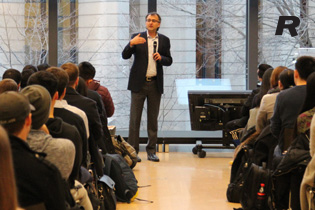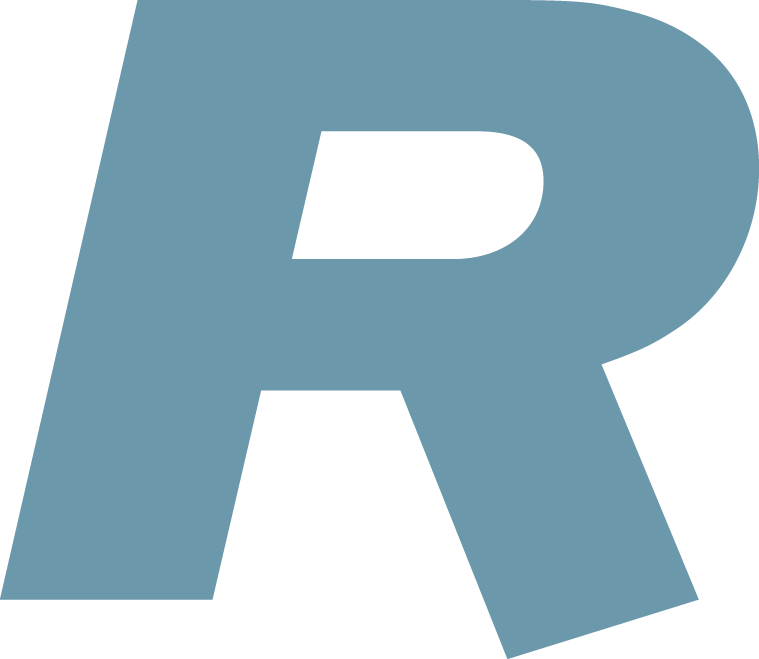 During his time at Rotman, Gonen Hollander (MBA ’17) thought a lot about the future and what he wanted to do after business school.
During his time at Rotman, Gonen Hollander (MBA ’17) thought a lot about the future and what he wanted to do after business school.
For Hollander, this meant doing work he really cared about, with a group that had a clear vision he could truly identify with. When the chance came up, during his second year at Rotman, to work with Acerta — a young startup that had developed an AI technology that could accurately detect automotive defects — it was a no-brainer.
“I could immediately get behind their larger vision of ensuring that all cars on the road are safer, especially at a time when we’re designing more complex vehicles and closer than ever to introducing autonomous driving,” explains Hollander.
At the time, Hollander was enrolled in the Creative Destruction Lab (CDL) course, an experiential student program that pairs business school students with early-stage science or technology based startups. For eight months, the students act as consultants — helping these young companies secure fundraising and grasp important business concepts and processes.
As one of Acerta’s MBA students, Hollander worked closely with the young venture on business development projects, from completing market research to developing a marketing strategy. During the company’s time in the CDL program, they secured seed funding and rapidly expanded.
Today, months after graduating from the Full-Time MBA program, Hollander is Acerta’s COO.
“This job fits all my criteria,” says Hollander. “I get to do really creative, hands-on work every day. At the same time, I know we’re headed in a good direction and working towards a meaningful purpose.”
The Creative Destruction Lab: helping startups scale up
Hollander’s story is a common one. Every year, the CDL at Rotman matches students from across the School — including those enrolled in the Full-Time MBA, Morning/Evening MBA, JD/MBA, MGA/MBA, EMBA, GEMBA, MFin and Commerce programs — with early-stage ventures. In several cases, these relationships turn out to be so productive that many students are hired on at the conclusion of the course.
The course aligns well with the CDL’s flagship program, aimed at mentoring and developing promising seed-stage startups. The Lab at Rotman accepts a limited number of ventures into their annual program. And these companies receive objectives- based mentoring from successful entrepreneurs and angel investors at no cost.
“I wanted to get a look at the companies that would be shaping the future of how we do business.”
-Ryan Turkienicz, MBA ’17, Product Manager, Nix Sensor
The program is highly competitive and rigorous. From the beginning, the objectives and targets for each startup are defined. Every eight weeks, the groups are expected to meet one-on-one with their mentors and report on their progress before all CDL fellows, associates, chief scientists and investors, at general meetings. And startups that fail to demonstrate growth, or sustain the interest of their fellows and associates, are cut from the program.
Through all of this, Rotman students play a crucial role in supporting CDL startups. From developing compelling pitches to managing budgets, students step in and direct these young companies on how to meet their targets and develop their businesses.
Meanwhile, students leave the CDL with valuable management experience, the knowledge that they helped further some very worthwhile ventures — and, in some cases, a new career path.
Embarking on an exciting new career
Initially, Ryan Turkienicz (MBA ’17) never saw himself working for a startup.
Before pursuing the Full-Time MBA at Rotman, Turkienicz had worked in real estate development, primarily looking after the management of retail spaces. He had noticed how e-commerce platforms had caused a massive shift in the retail market, and saw how going to business school could help him adapt and stay competitive in an ever-changing industry.
Getting involved with the CDL seemed like a natural choice.
“I wanted to get a look at the companies that would be shaping the future of how we do business,” he explains. “More than that, I wanted to learn how these companies were built.”
He was matched with Nix, a group that developed the technology behind a novel, colour-sensing device. The gadget, which syncs to smartphones, can accurately detect the colour of any surface it comes in contact with — and identify matching paint types and brands, making bulky paint chips and fan decks obsolete.
“The startup space is the perfect training ground for learning how to deal with the unexpected.”
-Alyssa Randall, MBA ’16, Senior Business Analyst, Capital One
When Nix first entered the CDL, they were already generating significant revenue and expanding rapidly. They were interested in working with Turkienicz, who had substantial business operations experience, to take the company to the next level.
By the time Turkienicz was getting ready to graduate, he realized that he wasn’t ready to walk away from Nix and the work he had started with them. Today, as a product manager with the company, Turkienicz is doing research on the customer experience and leading a design and development team so that the company can expand further and develop new, relevant software solutions.
Every day, on the job, he’s using the same lessons he picked up during his time with the CDL.
“Execution is everything,” he says. “Good ideas are a dime a dozen, but they don’t mean anything until you put your head down and hustle.”
Learning important lessons
When startups get cut from the CDL program, or when things don’t go exactly as planned, it can still be a rewarding and important learning opportunity for students.
The CDL startup that Alyssa Randall (MBA ’16) worked with, a group that had designed low-cost computer vision technologies that had potential applications in home security and pedestrian detection, eventually folded.
Still, Randall gained a lot of valuable experience in the process.
She pitched to hundreds of venture capitalists, designed a strong sales strategy, oversaw project planning and composed grant applications.
“What I learned most from the experience was how much I enjoyed this sort of work and the extremely fast pace,” says Randall. “The startup space is the perfect training ground for learning how to deal with the unexpected and how to cope when everything is coming at you all at once.”
And she constantly draws on these lessons in her current role as a senior business analyst with Capital One. Shortly after starting this role, she was tasked with reshaping one of the products the bank offered.
“I had a few weeks to get up to speed on the project. I was analyzing research, working with multiple stakeholders, dealing with unexpected complications and delivering presentations,” she explains. “It was a lot like working at a startup.” 
Written by Rebecca Cheung | More Student Stories »